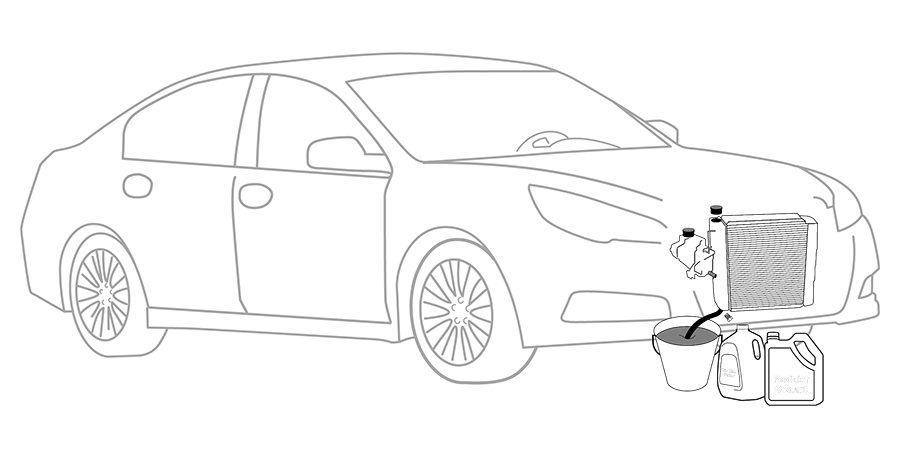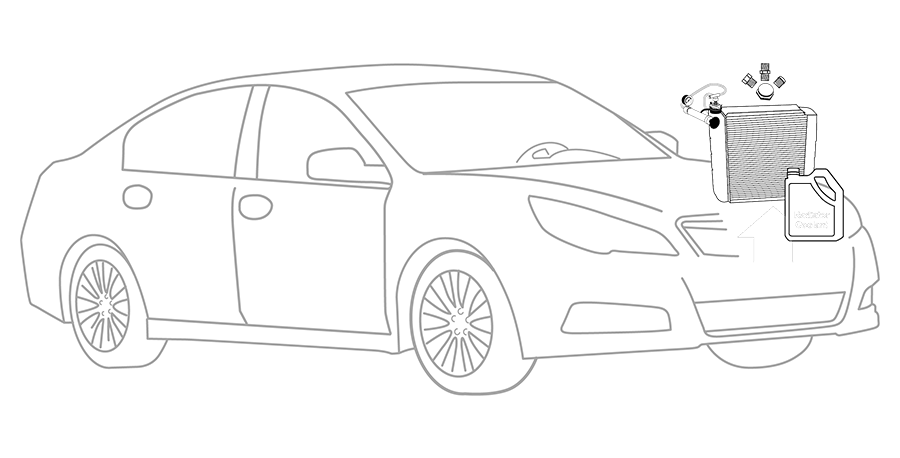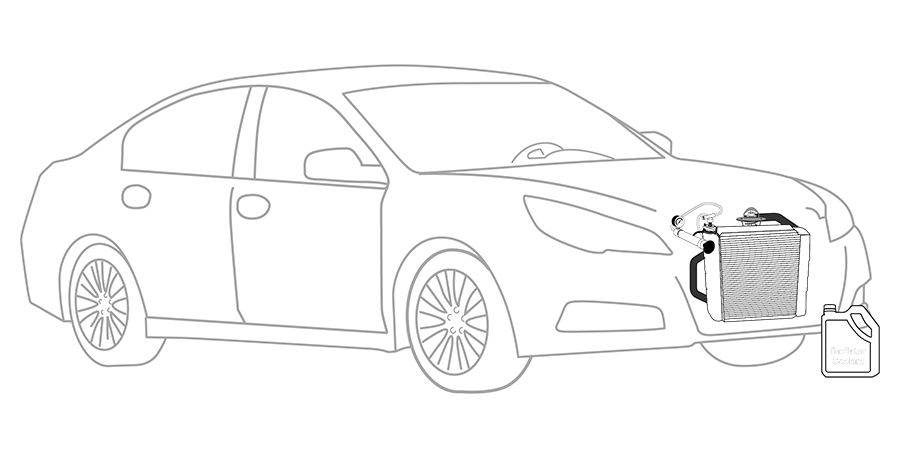
Cooling System Flush and Fill
In your vehicle, fuel is converted into heat energy, which means the internal temperatures in your engine compartment can increase dramatically in a short period of time. If your engine overheats, it can cause major damage to various components and cost you a significant amount of time and money to fix. The efficiency of a cold engine is low in comparison to a warm engine, and cold engines are prone to pollution. Your vehicle’s cooling system helps maintain a constant internal temperature. Ethylene glycol is mixed with water to make antifreeze, which is used in cooling systems to regulate your engine’s temperature. Your engine’s coolants must be capable of withstanding cold temperatures without freezing and warm temperatures without boiling. Aside from maintaining constant engine temperatures as it passes through the cooling system, antifreeze prevents corrosion and lubricates engine components to ensure that everything moves and performs properly. A cooling system flush is necessary for maintaining proper performance levels.


